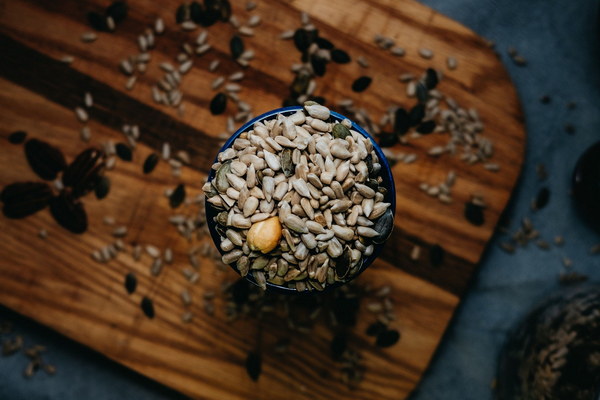Savoring the Brew of Health A Journey into Tea Culture and Wellness Wisdom
In the tranquil embrace of a cup of tea, we find not just a beverage, but a centuries-old tradition steeped in culture and health. Tea, with its rich tapestry of flavors and benefits, has been a cornerstone of wellness for countless generations. Let us embark on a journey into the world of tea culture and uncover the secrets of its health-giving properties.
The Art of Tea Culture
Tea culture, a practice deeply rooted in Asian societies, is more than just the act of brewing a cup. It is a ritual, a moment of reflection, and a means of social interaction. The Japanese tea ceremony, or chanoyu, is a prime example, where the preparation and consumption of tea are an art form. The Chinese, on the other hand, appreciate the tranquility of gongfu cha, a meticulous process that emphasizes the appreciation of the tea leaves.
The Health Benefits of Tea
Tea is not just a cultural phenomenon; it is also a health elixir. Here are some of the key benefits that have made tea a staple in many health-conscious individuals' lives:
1. Antioxidants: Tea is rich in antioxidants, which help protect the body against oxidative stress and may reduce the risk of chronic diseases such as heart disease and cancer.

2. Cardiovascular Health: Regular tea consumption has been linked to a lower risk of heart disease. The flavonoids in tea, particularly catechins, may help improve blood flow and reduce cholesterol levels.
3. Weight Management: Green tea, in particular, has been studied for its potential weight-loss benefits. It may boost metabolism and increase fat oxidation.
4. Digestive Health: Tea can help improve digestion. The tannins in tea can act as a natural astringent, helping to firm the stools and reduce gastrointestinal inflammation.
5. Mental Clarity and Stress Reduction: The amino acid L-theanine found in tea can enhance alpha brain waves, which are associated with a state of calm and alertness. This can lead to improved mental clarity and a reduction in stress levels.
Types of Tea and Their Benefits
- Green Tea: Known for its high content of antioxidants and L-theanine, green tea is excellent for weight loss and mental alertness.
- Black Tea: Rich in caffeine, black tea can boost energy levels and may also help in the prevention of heart disease.
- White Tea: The least processed of all teas, white tea is believed to have the highest concentration of antioxidants and may have anti-aging properties.
- Oolong Tea: A semi-fermented tea, oolong offers a balance of caffeine and antioxidants, making it beneficial for both mental and physical health.
- Pu-erh Tea: This unique tea, which is fermented and aged, has been shown to aid digestion and may help in weight management.
The Ritual of Tea
The ritual of tea is not just about the act of drinking; it is about the experience. It is a chance to slow down, to appreciate the moment, and to connect with others. Here are some tips for creating a tea ritual in your own home:
- Choose the Right Tea: Select a tea that resonates with your personal taste and health goals.
- Use Good Quality Water: The quality of the water can greatly affect the flavor of the tea.
- Use the Right Tea Leaves: Fresh, high-quality tea leaves will make a significant difference in the taste and health benefits of your tea.
- Enjoy the Experience: Take the time to sit quietly, breathe deeply, and savor each sip.
In conclusion, tea is more than just a drink; it is a cultural and health treasure. By embracing the art of tea culture and understanding its health benefits, we can enrich our lives with the soothing embrace of this ancient beverage. So, the next time you pour yourself a cup of tea, take a moment to appreciate its many layers of wellness and tradition.









